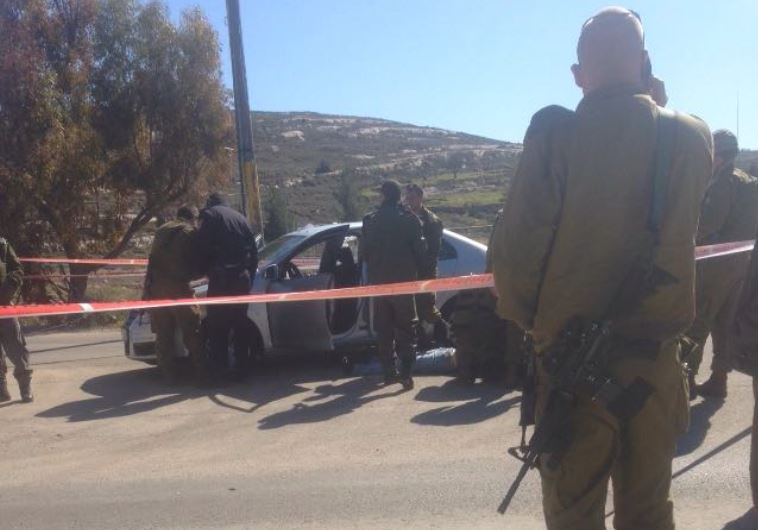COMMENT: Signaling the start of an armed intifada?
The telltale signs are: First, the perpetrating terrorist’s profile, Second, each terrorist attack spurs imitation on the Palestinian side.
 Scene of shooting attack near Beit El(photo credit: BEIT EL SECURITY/RAFI ALUSH)Updated:
Scene of shooting attack near Beit El(photo credit: BEIT EL SECURITY/RAFI ALUSH)Updated: